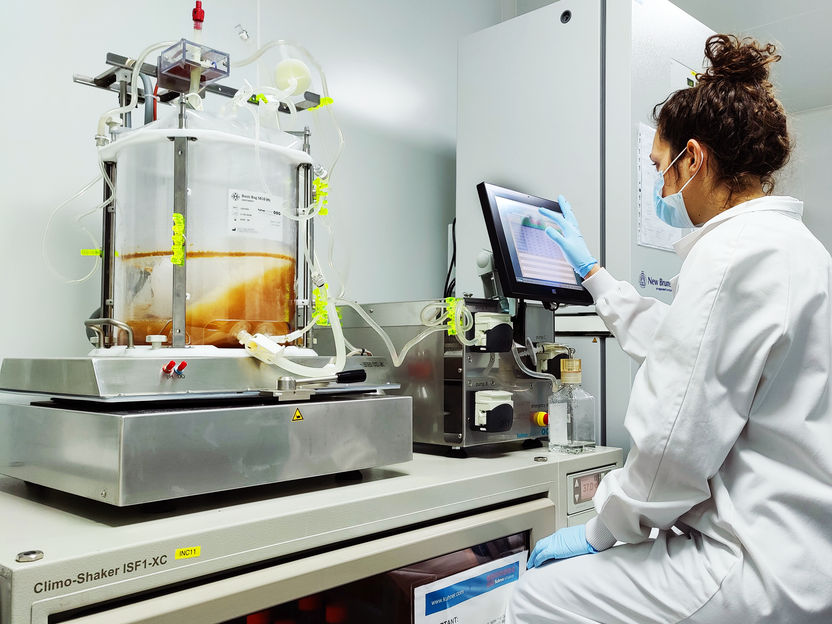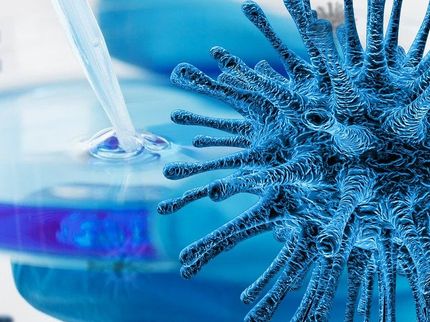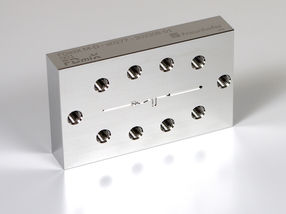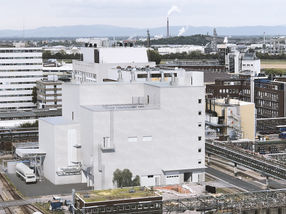Covalab invests more than €1 million in bioproduction operations for antibodies for Covid-19 diagnostics
Company’s BioDiaThera project received almost €500,000 in subsidies as part of French ‘Capacity Building’ scheme
Covalab, a biotechnology company that specializes in the development and production of recombinant proteins and antibodies for diagnostics and therapeutics, announces that its BioDiaThera project has been awarded €491,152 ($520k) in funding as part of the French ‘Capacity Building’ scheme; part of the ‘France 2030’ investment roadmap. Launched by the French government, this scheme is intended to strengthen national production capability in response to the Covid-19 pandemic. Covalab also plans to invest €566k ($600k) of its own funds into the project, taking the total investment to over €1 million ($1.06M).

Covalab plans to develop production platform for recombinant proteins and antibodies for use in diagnostic tests for Covid-19, developed using French technologies and expertise
Covalab
Led by Covalab, the BioDiaThera (Bioproduction, Diagnostics and Therapeutics) project focuses on developing the company’s bioproduction platform, which has the capability to produce recombinant proteins and antibodies in gram amounts. These are used in diagnostic tests for Covid-19 (serological tests for recombinant and antigenic proteins with antibodies), which are developed and produced in France in collaboration with a French partner company.
Covalab plans to use the funding to increase its production capacity tenfold. This will enable the company to supply proteins and antibodies to both French and European markets using its highly efficient bioproduction platform, the capacity of which ranges from tens of milliliters to 20-liter bioreactors. Currently, French national production in the bioproduction sector covers only 3% of the demand associated with Covid-19 diagnostics (source: LEEM, the French pharmaceutical industry association). However, the use of Covid-19 diagnostic tests is still high, with close to 2 million tests per week in France in May 2022.
Having recently obtained ISO 9001 certification, as part of this project Covalab plans to scale up its operations, so it can produce enough material for several million standardized and CE-approved tests per month. The company, which currently employs around twenty staff, also plans to increase its workforce with the creation of approximately ten new posts.
The BioDiaThera project is part of the third wave of funding awarded since the French government launched its ‘Capacity Building’ scheme, as part of its ‘France 2030’ investment plan. The aim is to increase France’s industrial capacity so that it can produce the healthcare products needed in the fight against the pandemic and provide immediate responses to help curb the spread of Covid-19 and its variants.
“This funding is a valuable recognition of the bioproduction expertise that Covalab has built up over the course of our research activities. Together with a significant injection of our own funds, it will enable us to invest in the R&D, equipment and HR resources that we need to facilitate the development of tests using cutting-edge French technologies, which will help in the fight against Covid-19. Thanks to our expertise in producing material in gram amounts, we will be able to supply the necessary antibodies and recombinant proteins to cut timescales, while also keeping down production costs for the test kits,” said Saïd El Alaoui, president of Covalab.
Covalab has also developed a unique DNA vaccine technology to generate antibodies that recognize a conformational epitope specific to all the membrane proteins. Following administration of a non-invasive coding DNA vaccine for the target protein, the technology triggers – in various animal models – the generation of antibodies directed against a native and structured protein. These antibodies have a greater affinity to the native protein than a conventional vaccine. In Covid-19 screening tests there are a number of advantages to using antibodies with very high affinity, not least the fact that these tests are twice as sensitive as those currently used, which opens up the possibility (depending on the variant and patient) of detecting the presence of Covid-19 between 24 and 48 hours after infection, rather than several days post-infection, as is currently the case.
Alongside this work, Covalab also plans to develop some new CDMO services for the production of preclinical batches of therapeutic antibodies and recombinant proteins in gram amounts, to respond to the growing demand from pharmaceutical companies and CROs, notably in the preclinical phases of cancer research. The company currently runs some development projects for custom antibodies; with its production capacity increased, it would be able to quickly produce batches of these to support preclinical validation for therapeutic molecules. Thanks to its immunology expertise, Covalab can also use its knowledge on the production and validation of antibodies to support clients in the pharmaceutical sector.
Other news from the department manufacturing
Most read news
More news from our other portals
See the theme worlds for related content
Topic world Antibodies
Antibodies are specialized molecules of our immune system that can specifically recognize and neutralize pathogens or foreign substances. Antibody research in biotech and pharma has recognized this natural defense potential and is working intensively to make it therapeutically useful. From monoclonal antibodies used against cancer or autoimmune diseases to antibody-drug conjugates that specifically transport drugs to disease cells - the possibilities are enormous

Topic world Antibodies
Antibodies are specialized molecules of our immune system that can specifically recognize and neutralize pathogens or foreign substances. Antibody research in biotech and pharma has recognized this natural defense potential and is working intensively to make it therapeutically useful. From monoclonal antibodies used against cancer or autoimmune diseases to antibody-drug conjugates that specifically transport drugs to disease cells - the possibilities are enormous
























































